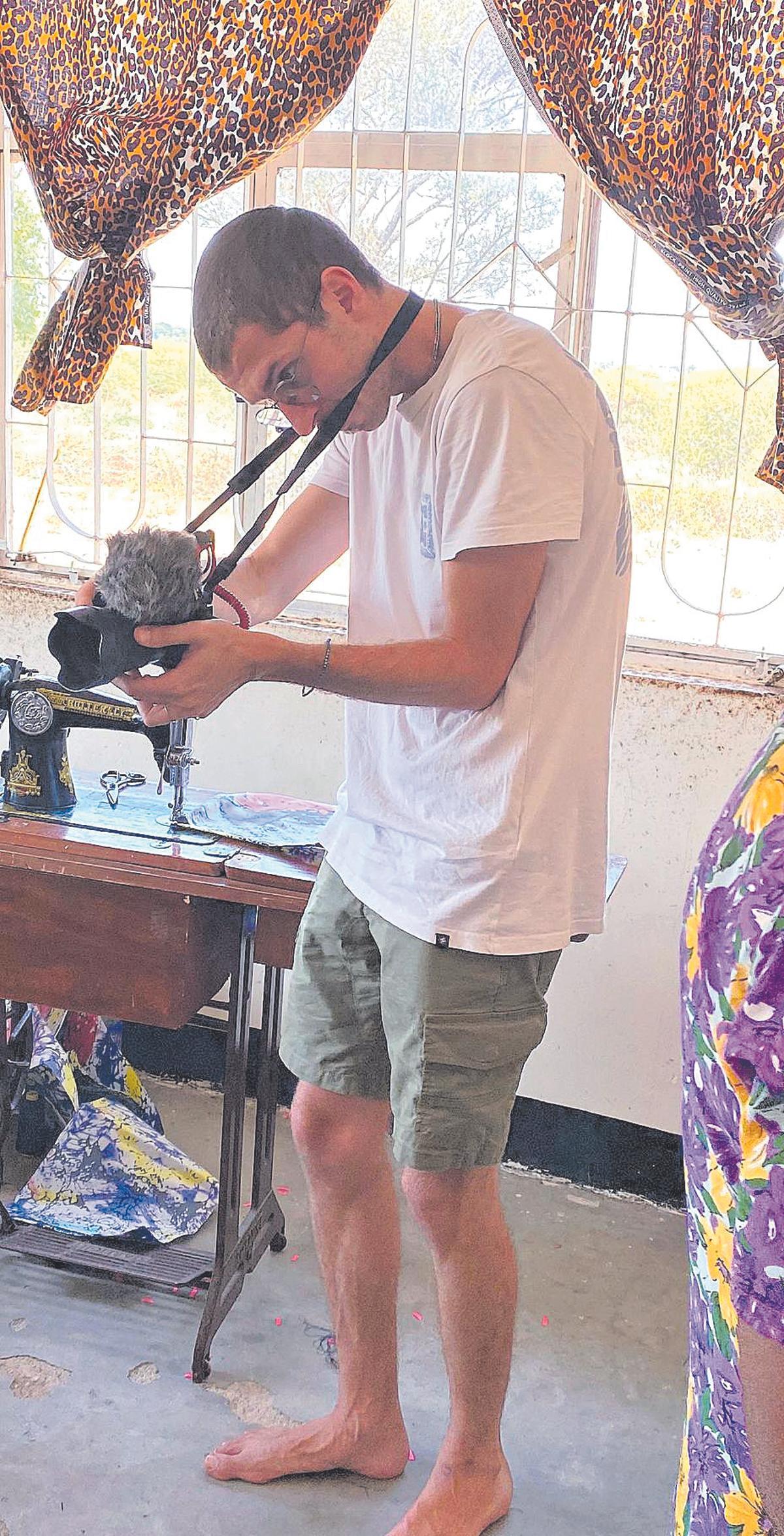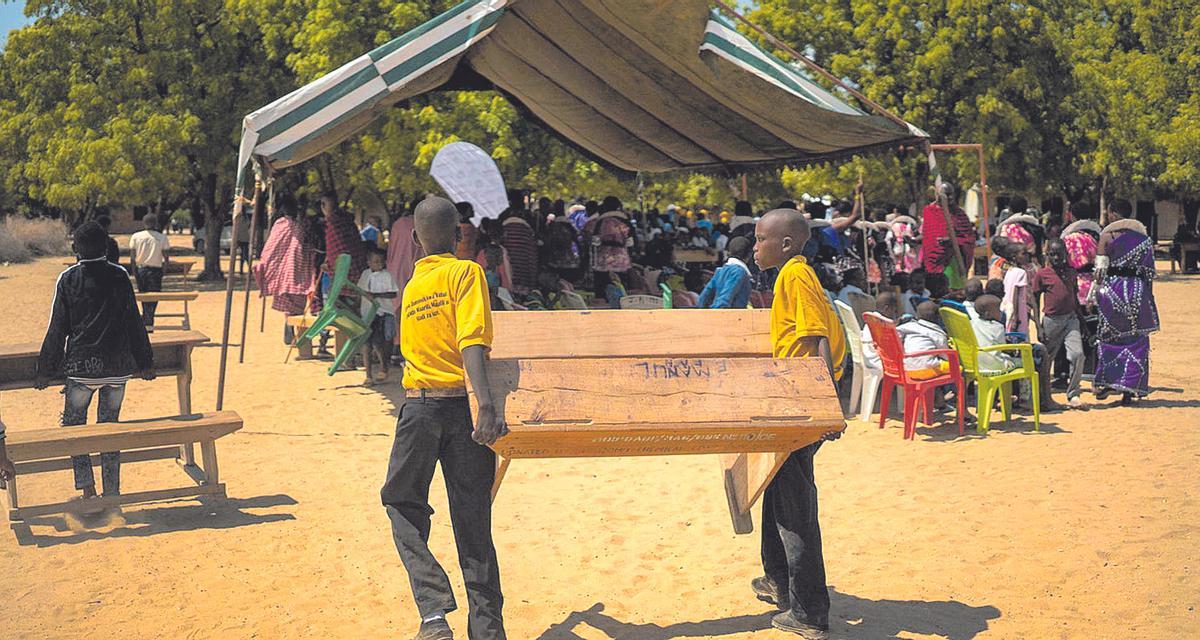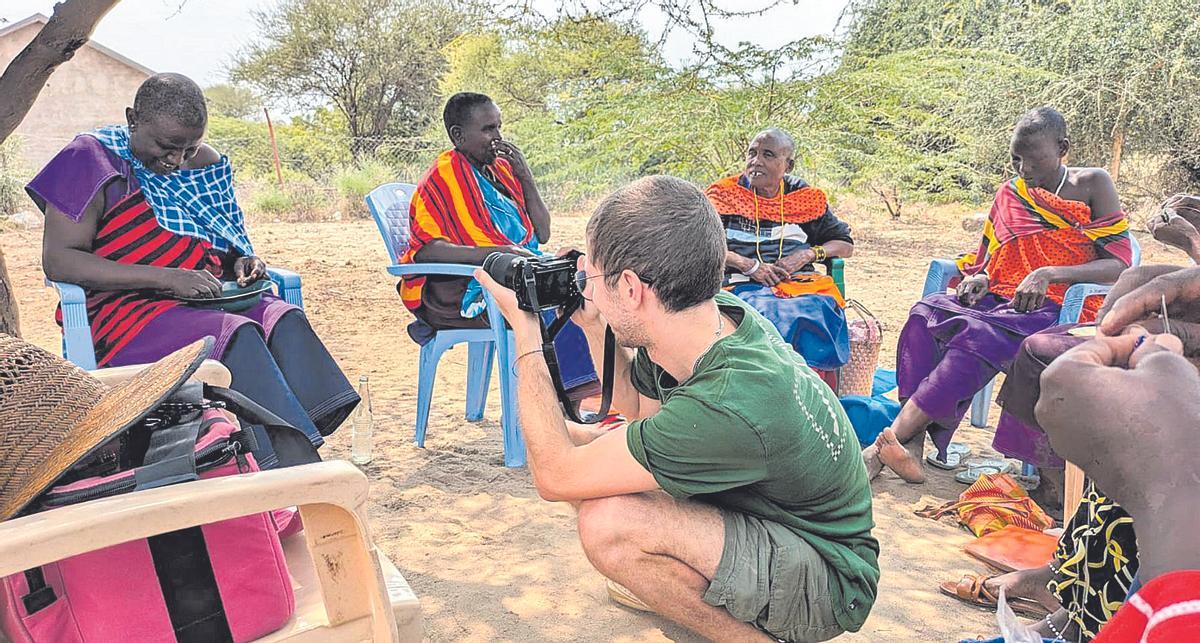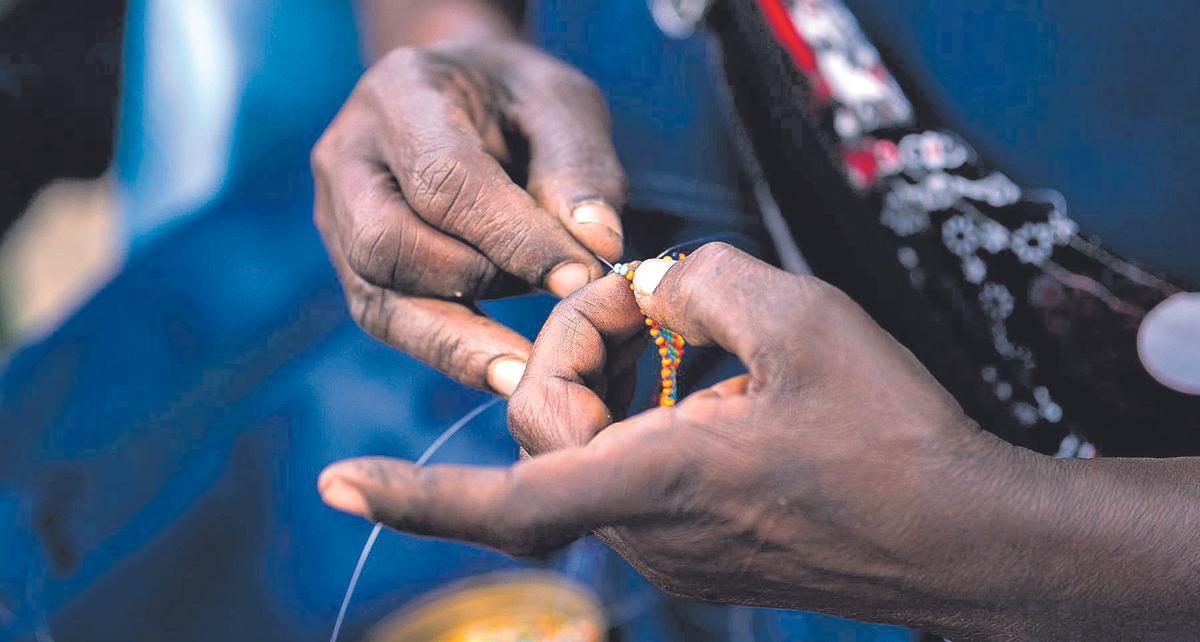He studied the degree of his dreams and trained in International Journalism. Besides, he saw how television opened wide doors for him to carve out a niche in his profession. What he did not expect is that, after more than a year working, several existential questions invaded his mind. He left everything except his camera and emigrated more than 6,500 kilometers to reconnect with himself.
[–>
Sometimes, we look around us and see our life all set up. We have a job, a group of friends or a routine, some have a partner, and we tend to revolve our daily life around this. It is difficult to realize that we are not where we would like to be and, even more, to be able to break away from everything and make a 180-degree turn in your life. This is what Roberto Lomba decided to do.
This journalist from the Canary Islands, a native of La Minilla, in Gran Canaria, changed everything. He settled in Tenerife in 2017 with the idea of studying the degree of his dreams. A photography lover, he saw journalism as a suitable path to start his career in the working world. After four years of studies and an internship experience, he flew to Barcelona to train in International Journalism. A year later, Tenerife welcomed him with a job opportunity.
Television, as wonderful as it can be complicated at times, opened doors for him to grow and make himself known. At Televisión Canaria, Roberto found a space that, as he puts it, “gave me many very valuable skills as a journalist, from effectiveness and creativity to knowing how to move under pressure.” However, sometimes, existential questions begin to sound louder in our heads, something that happened to Lomba.
“There comes a point where one has to be honest with oneself. Television forced me to leave photography behind, one of my greatest passions that is part of my identity as a journalist and as an author.” This reflection and a call from an acquaintance led him to take the biggest leap of his life: going to work in Tanzania for an NGO in an altruistic way and only with the desire for a new adventure.

Roberto Lomba and a camera as a dance partner. / La Provincia
After listening to him for a while on the phone, Roberto is able to transmit all the energy he has managed to recover since he set off to Tanzania. As he puts it, “I feel fulfilled and doing what I love. Since I was a child, my dream was to be able to buy a camera and take photos of everything that caught my attention. What I did in my free time, I have now turned it into my life, something that has renewed my enthusiasm.”
With just over a month’s notice, Roberto left television and decided to embark on a journey that has taken him to the city of Moshi and TATU Project. This NGO, with a Swahili origin name, works on three very marked pillars: the environment, women’s empowerment, and improving health and development in the African country.
The arrival in Tanzania brought with it “a sea of emotions,” but he found several similarities very close to the Canarian imagery. Moshi is one of the most touristy places in the country, and it has one of the most important natural parks in the world nearby, which houses Kilimanjaro. This image brings a memory to Lomba’s mind: “You look up and see a giant with the snowy peak in the background of the city and suddenly, the postcard of sitting on some lookout in the north of Tenerife invades your mind irresistibly.”
“If Canarians are called bananas, the Tanzanians take the cake with ‘pole pole'”
[–>
The cultivation of bananas is another of the similarities with our land that the journalist has found, since “when you move away from the center, you find giant fields of banana plants, and it is that the banana is one of the national products par excellence, as in Canarias.” Despite this, he is clear: “There is no banana like the ones from Canarias.”
Also, in the local culture prevails a Canary maxim that usually annoys certain people. This is how Roberto himself summarises it: “If Canarians are called bananas because of our way of life, the Tanzanians take the palm. Here, the ‘pole pole’ culture would be what ‘ easy does it‘ is in Canarias.” The attitude in Tanzania is like that, so either you embrace the pole pole or you run the risk of frustrating yourself alone in the amazed gaze of the calm Tanzanian.”
A project to help
Lomba left his life as he knew it, but he did it for a project in which he left television behind to take care of the NGO’s social media for the next three months. TATU Project was born with the idea of changing the life of a community that needed help. In a remote region of Moshi, called Msitu wa Tembo and Londoto, is where they carry out numerous projects that “range from the manufacturing of reusable sanitary pads.
From workshops on menstruation (a big taboo here) to the recovery of areas destroyed by floods and river floods during the rainy season».
Historically, women’s role in this region has been secondary. That’s why Lomba highlights that the NGO works “so they can be self-sufficient and know how to engage in multiple activities.” The path has already begun, and currently, “thanks to TATU’s actions, they autonomously manage a grocery store, a bike rental and repair service, and even a fully operational economic loan service.”

The journalist captures the daily life of various Tanzanian communities through the initiatives of the NGO TATU Project. / La Provincia
Working in an NGO in Tanzania has led him to change his mindset: “I arrived with television mentality deeply ingrained. Speed, efficiency, and haste, but here this mentality doesn’t work. Work here is somewhat marked by Tanzanian idiosyncrasy, so the main idea is to focus on the quality of content and work on it gradually.”
First Encounter with a ‘Mzungu’
[–>
Many people in the vicinity of Tanzanian cities have had no interaction with anyone outside their community. Hence, the contact with Roberto Lomba was the first they had with a ‘Mzungu’. “In my early days, we had a special event around the African Children’s Day. It was held in a very remote area of the region, quite isolated and by a beautiful lake. There, many boys and girls had their first interaction with a Mzungu, which is what they call whites here, and I experienced something I never expected. Emotions ranged from curiosity to fear, always under the watchful and amused gaze of their respectful mothers,” Lomba recounts as one of the anecdotes that has marked him the most during his time in Tanzania.

The journalist captures the daily life of various Tanzanian communities through the initiatives of the NGO TATU Project. / La Provincia
An altruistic stay that will initially last for three months. Then, a book yet to be written by Roberto Lomba. A communication nomad who continues to fight for his dreams and passions, even if it means crossing the ocean.
The Figure of Pablo Feito
[–>
This journey into the unknown would not be understood without the figure of Pablo Feito. He was the first of the two to approach the TATU Project and the link between Roberto and the African NGO. They met in Barcelona, where they forged a good friendship while studying the same master’s degree. Moreover, as Lomba recounts, “luck made us neighbours in Raval, where we both lived that year.”
He had the opportunity to get involved as a volunteer in TATU through contacts in his family, and he left without hesitation, similar to what Roberto did. Feito has become the director of the communication and fundraising department of the project. Therefore, one of his initial thoughts was to combine Lomba’s expertise with the camera. The goal was to take TATU Project’s communication to the next level through social media, the easiest way to communicate all the initiatives carried out by the NGO to help the Tanzanian people, especially women and children.

The journalist captures the daily life of various Tanzanian communities through the initiatives of the NGO TATU Project. / La Provincia
This led to a phone call connecting Tanzania with Tenerife: “Pablo suggested I come to Moshi as an assistant in the communication department for a few months. To try and see what we could achieve together. Since I arrived, I’ve been coordinating social media and the photography department of the NGO.”
A friendship that led to a 180-degree turn, a complete change of life that has taken Roberto Lomba from Tenerife to Tanzania, from the small screen to social media, from receiving a monthly salary to embarking on an altruistic adventure simply because he believes in what he does, to rediscover that he pursued the right vocation, to reconnect with himself.
[–>
It was a tough decision to make but often necessary in our lives. Breaking out of a spiral of dismay can be very difficult, but as Roberto Lomba expresses, “there is always time to try again in another place and in a different way. And if there isn’t, it’s the memories that will remain at the end of the road.” Not a bad philosophy to understand life, his life, more than 6,000 kilometres from home.
Subscribe to continue reading
















